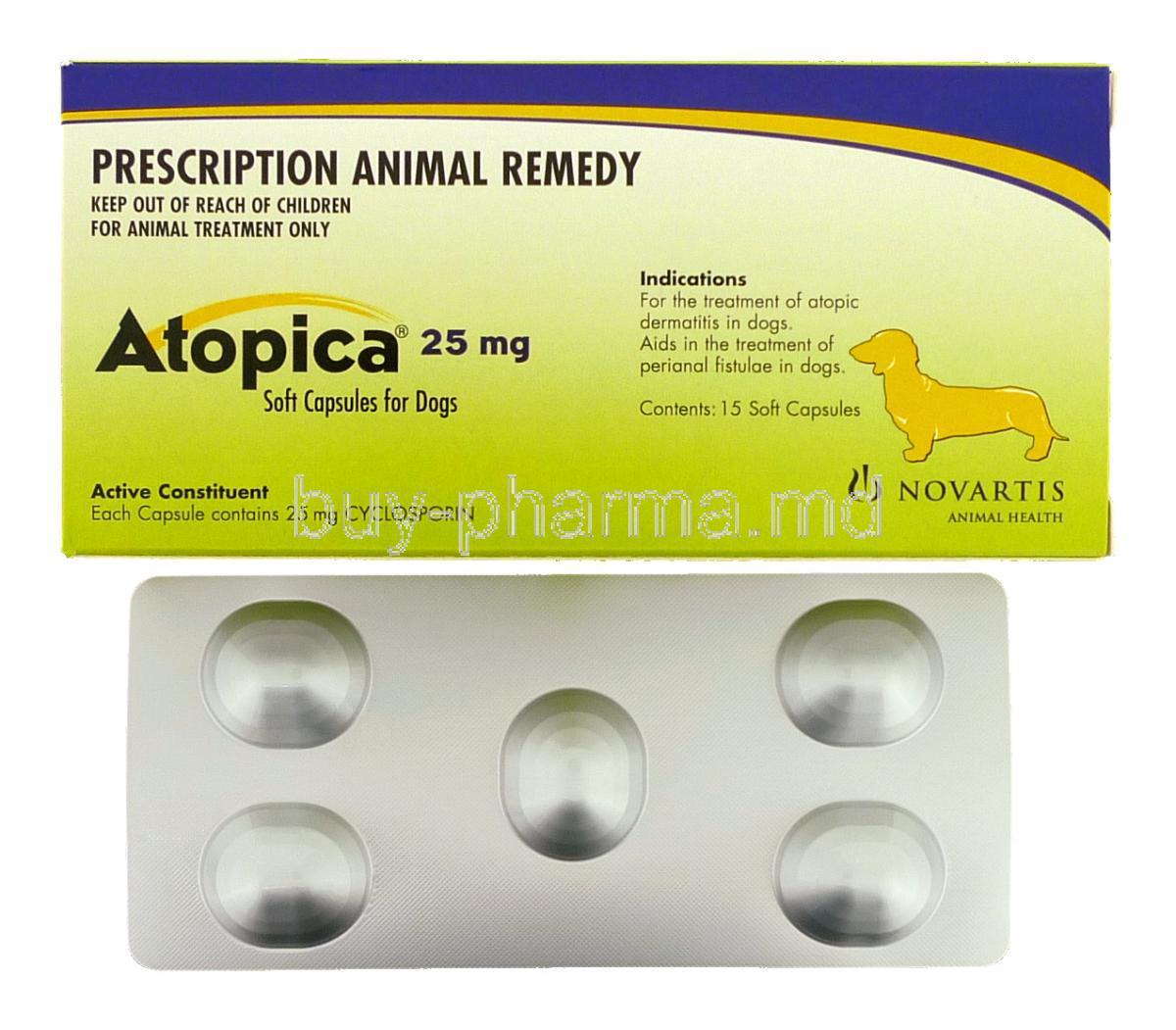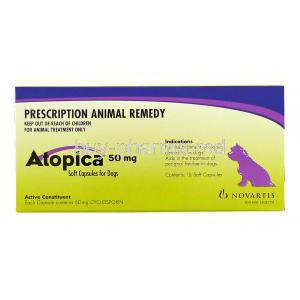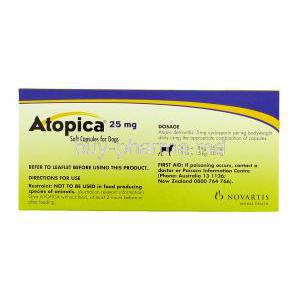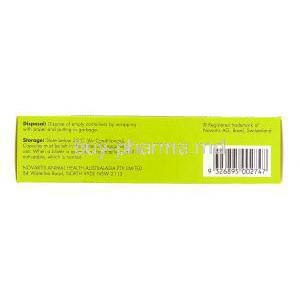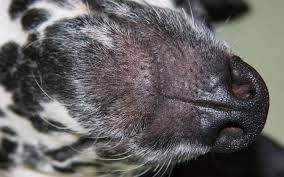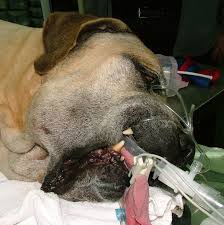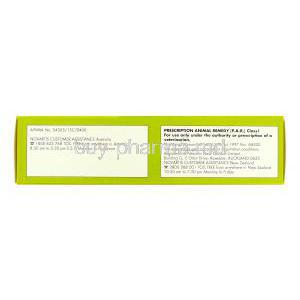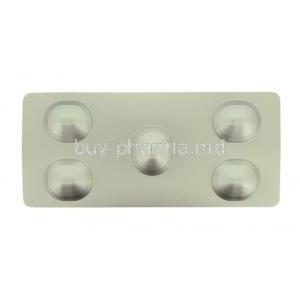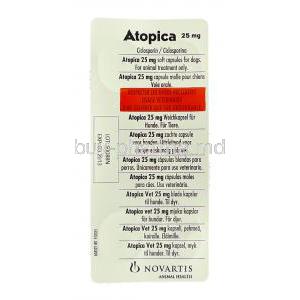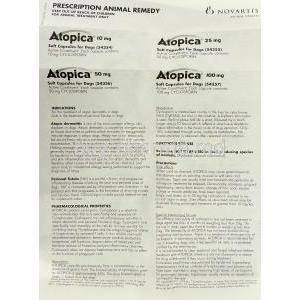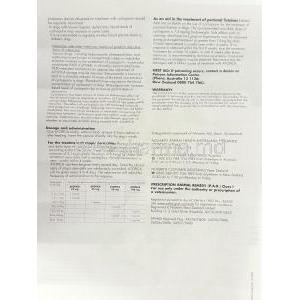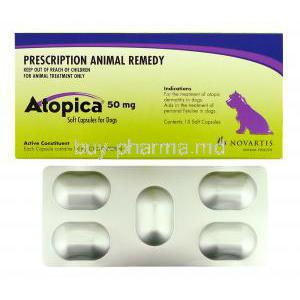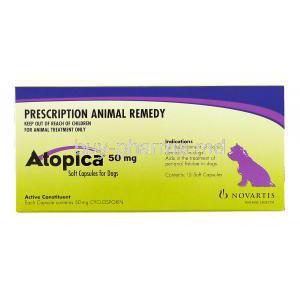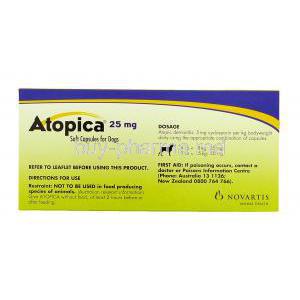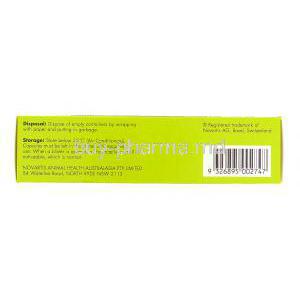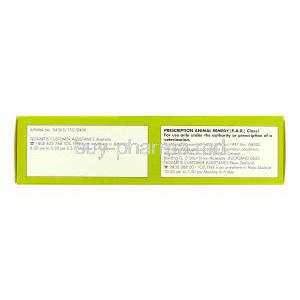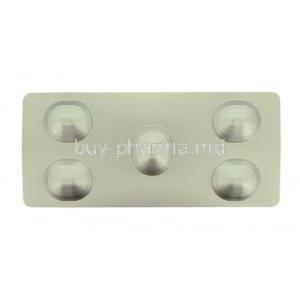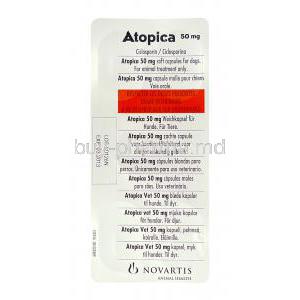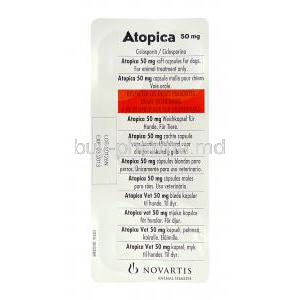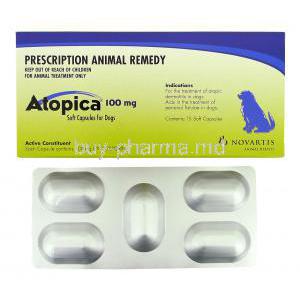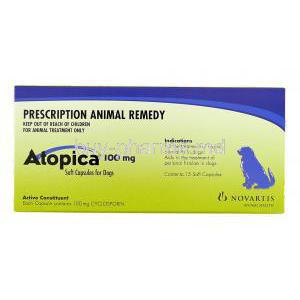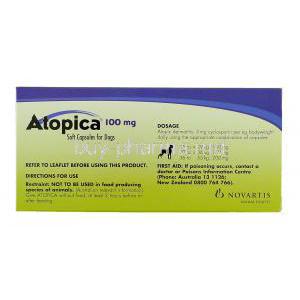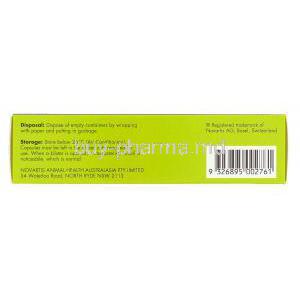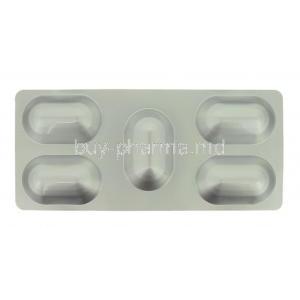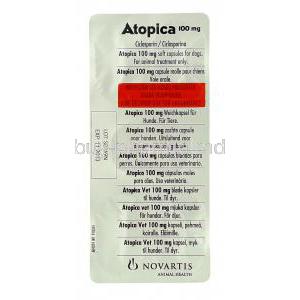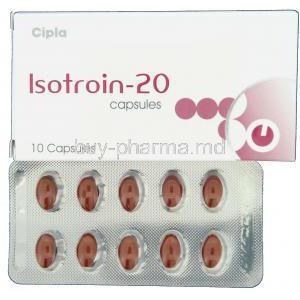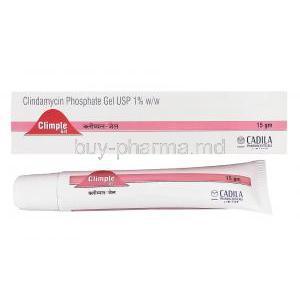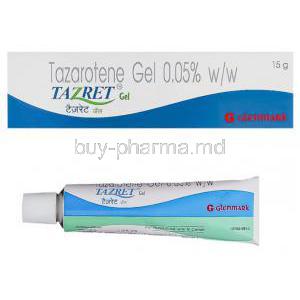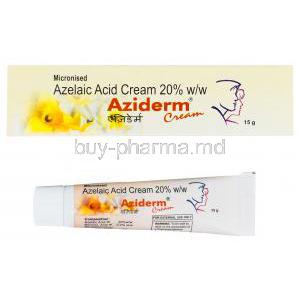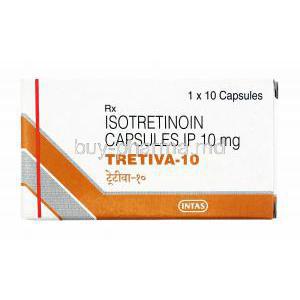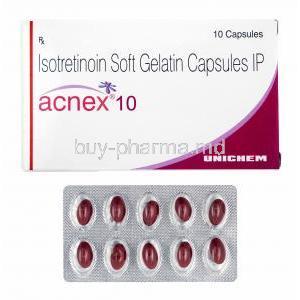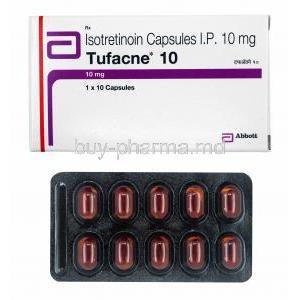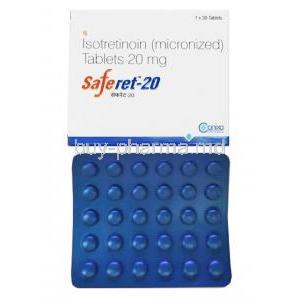Atopica Soft Capsule
- Introduction to Atopica Soft Capsule
- Composition and Active Ingredients
- Mechanism of Action: How Atopica Soft Capsule Works
- Approved Uses of Atopica Soft Capsule
- Off-Label Uses of Atopica Soft Capsule
- Dosage and Administration Guidelines
- Storage and Handling Precautions
- Drug Interactions and Potential Risks
- Warnings and Contraindications
- Important Precautions for Safe Use
- Administration Considerations for Specific Populations
- Common Side Effects of Atopica Soft Capsule
- Severe and Rare Side Effects
- Overdose and Toxicity Management
- Best Practices for Safe Handling
Introduction to Atopica Soft Capsule
Overview of Atopica Soft Capsule
Atopica Soft Capsule is an advanced veterinary medication designed to manage chronic allergic and autoimmune conditions in companion animals. The primary active ingredient, cyclosporine, is a potent immunosuppressant that modulates immune responses, alleviating symptoms of inflammatory diseases. Veterinarians often prescribe Atopica as a long-term solution for conditions that traditional antihistamines and corticosteroids fail to control.
FDA Approval and Regulatory Status
The U.S. Food and Drug Administration (FDA) has given its approval for the use of Atopica Soft Capsule in treating atopic dermatitis in dogs in the field because of its practical nature. Various regulatory bodies worldwide have assessed its properties to make sure it meets veterinary requirements. Though Atopica's sometimes used off label, for other purposes it is still considered a prescription drug that needs professional supervision.
Targeted Medical Conditions and Patient Demographics
- Canine atopic dermatitis: Chronic skin inflammation driven by environmental allergens.
- Autoimmune disorders: Conditions where the immune system mistakenly attacks normal tissues.
- Organ transplantation: Used in veterinary medicine to prevent organ rejection.
Atopica is primarily prescribed for dogs but has shown effectiveness in cats and other small animals for off-label conditions.
Composition and Active Ingredients
Active Pharmaceutical Ingredient (Cyclosporine)
The primary component of Atopica Soft Capsule is cyclosporine, a lipophilic cyclic polypeptide derived from the fungus Beauveria nivea. It selectively inhibits T-cell activation, reducing inflammation and allergic responses while preserving broader immune function.
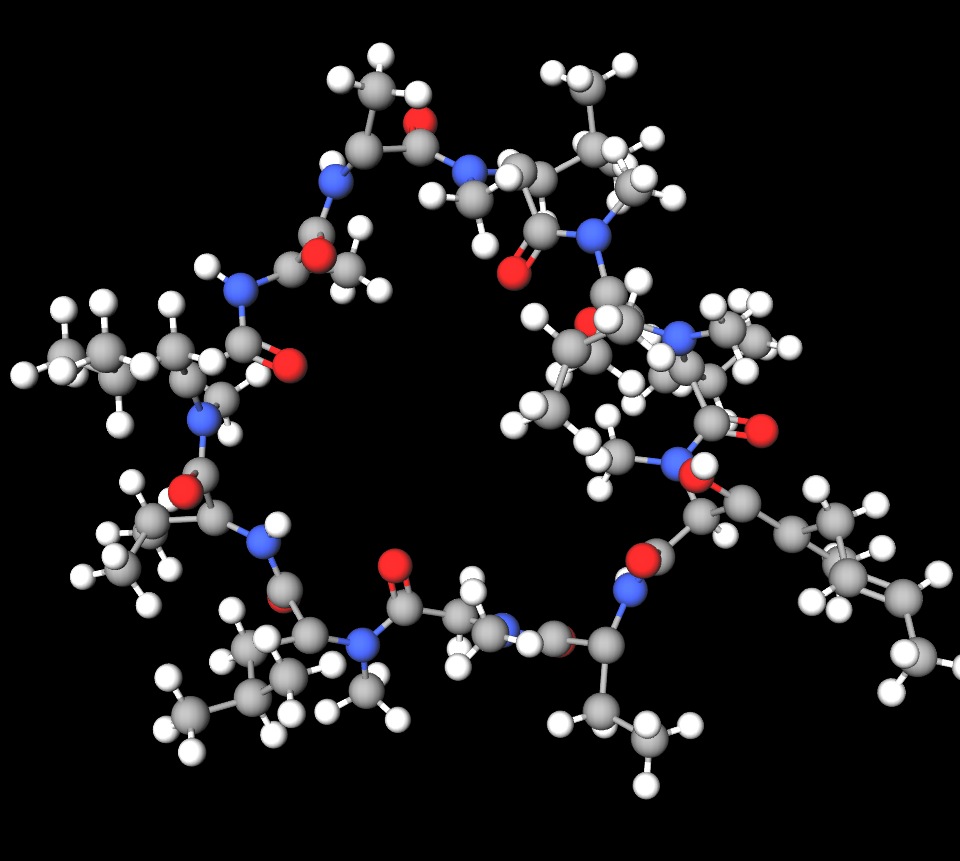
Inactive Ingredients and Their Roles
- Medium-chain triglycerides (MCTs): Enhance bioavailability and absorption.
- Gelatin capsule: Protects the active ingredient from premature degradation.
- Glycerol: Helps maintain capsule integrity and stability.
Capsule Formulation and Absorption Mechanism
Atopica's soft capsule formulation ensures optimal gastrointestinal absorption. The lipid-soluble nature of cyclosporine enables rapid uptake into the bloodstream, where it is transported via lipoproteins to target immune cells.
Mechanism of Action: How Atopica Soft Capsule Works
Cyclosporine as an Immunosuppressant
Cyclosporine works by blocking calcineurin activity – an enzyme, in the T cell activation process. Unlike corticosteroids that broadly suppress the systems functions, it targets immune reactions to keep them in check.
Suppression of Immune Response and T-Cell Activity
By blocking interleukin-2 (IL-2) synthesis, cyclosporine prevents T-cell proliferation, thereby reducing inflammatory mediators responsible for itching, swelling, and tissue damage.

Impact on Inflammatory Pathways and Autoimmune Disorders
The suppression of T cell activation results in decreased cytokine release and less infiltration of cells, which helps reduce attacks on tissues.
Approved Uses of Atopica Soft Capsule
Treatment of Atopic Dermatitis in Dogs
Management of Autoimmune Disorders in Veterinary Medicine
Veterinarians prescribe Atopica for autoimmune conditions such as:
- Pemphigus foliaceus: An autoimmune skin disease causing blistering.
- Immune-mediated hemolytic anemia (IMHA): A disorder where red blood cells are prematurely destroyed.
Role in Organ Transplantation in Veterinary Care
Off-Label Uses of Atopica Soft Capsule
Treatment of Perianal Fistulas in Dogs
Use in Feline Allergic Dermatitis
While Atopica is not officially approved by the FDA for use, cats with feline allergic dermatitis symptoms, such as itching and skin lesions, often find relief through its administration.
Management of Other Inflammatory and Autoimmune Conditions in Animals
- Inflammatory bowel disease (IBD): Helps regulate immune-mediated intestinal inflammation.
- Systemic lupus erythematosus (SLE): Used to modulate aberrant immune activity.
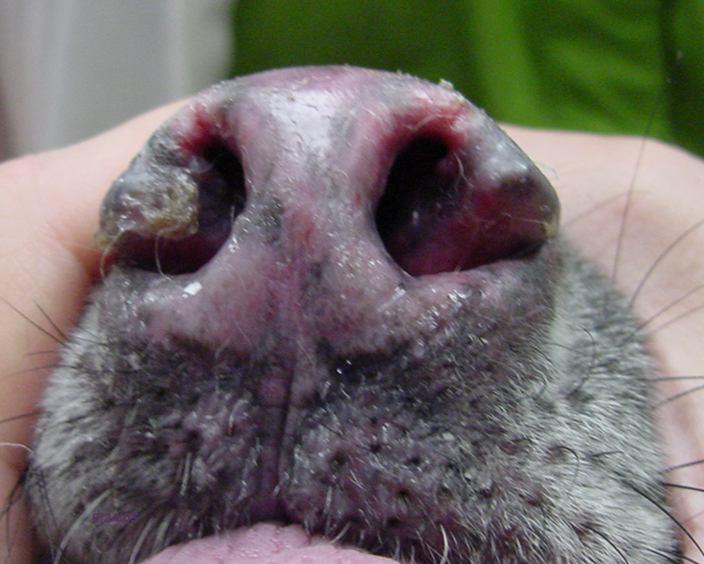
Potential Investigational Uses in Human Medicine
While mainly used in medicine, research is being conducted on cyclosporine to explore its benefits in treating uncommon inflammatory conditions in humans.
Dosage and Administration Guidelines
Standard Dosage Recommendations for Atopic Dermatitis
The usual recommended amount is 5 milligrams per kilogram per day. May be changed depending on how the patient responds.
Titration and Dose Adjustments Based on Patient Response
Once the symptoms are under control successfully, it might be possible to reduce the dosage and take it every day instead.
Best Practices for Administration With or Without Food
Take it before eating to get the effect on your body. It's best not to combine it with dairy items since they might affect how well your body absorbs it.
Monitoring Therapeutic Response and Adjusting Treatment Duration
Regular visits to the vet are important to keep an eye out for any changes in blood cyclosporine levels and the overall health of your pet's organs.
Storage and Handling Precautions
Ideal Storage Conditions (Temperature, Humidity Control)
Remember to keep the item in a spot between 15 and 30 degrees Celsius (59 to 86 degrees Fahrenheit) away from direct sunlight.
Expiry Date Considerations and Proper Disposal Methods
Make sure to dispose of expired medication according to guidelines to avoid contaminating the environment.
Safety Measures to Prevent Accidental Exposure
- Wear gloves when handling.
- Keep out of reach of children and pets.
Drug Interactions and Potential Risks
Medications That May Increase or Decrease Cyclosporine Levels
- Ketoconazole: Increases cyclosporine blood levels.
- Rifampin: Decreases cyclosporine concentration.
Potential Interactions With Antifungal Agents, NSAIDs, and Corticosteroids
When cyclosporine is paired with NSAIDs or corticosteroids, it could increase the effects. It heighten the chances of infections occurring.
Effects on Liver Enzyme Metabolism and Drug Clearance
Cyclosporine undergoes hepatic metabolism via the cytochrome P450 system, necessitating dose adjustments in patients with liver impairment.
Warnings and Contraindications
Contraindications in Patients with Hypersensitivity to Cyclosporine
Atopica Soft Capsule is strictly contraindicated in animals exhibiting hypersensitivity to cyclosporine or any of its excipients. Hypersensitivity reactions may manifest as:
- Severe pruritus
- Urticaria (hives) or facial swelling
- Anaphylactic shock in extreme cases
Immediate discontinuation and emergency veterinary intervention are imperative in cases of acute allergic response.

Risks in Animals with Pre-Existing Liver or Kidney Disease
Cyclosporine undergoes hepatic metabolism and renal excretion, necessitating caution in patients with hepatic dysfunction or renal impairment. Prolonged exposure may exacerbate:
- Hepatic enzyme elevation (ALT, AST)
- Nephrotoxicity due to compromised renal clearance
Routine blood chemistry panels are essential to detect early signs of toxicity.
Precautions for Patients with Active Infections
Due to its immunosuppressive properties, Atopica increases susceptibility to bacterial, viral, and fungal infections. Administration should be withheld in cases of:
- Systemic bacterial infections (e.g., pyoderma, pneumonia)
- Chronic viral diseases (e.g., FeLV, FIV in cats)
- Fungal infections (e.g., histoplasmosis, cryptococcosis)
Potential for Increased Risk of Neoplasia with Long-Term Use
Prolonged cyclosporine therapy may predispose animals to neoplastic transformation due to chronic immunosuppression. Potential risks include:
- Increased incidence of cutaneous papillomas
- Heightened susceptibility to lymphoma
- Accelerated progression of latent oncogenic conditions
Important Precautions for Safe Use
Need for Regular Blood Tests to Monitor Organ Function
Periodic hematological and biochemical assessments are indispensable in animals receiving long-term cyclosporine therapy. Key parameters include:
- Complete Blood Count (CBC) to assess leukocyte suppression
- Serum biochemistry to monitor hepatic and renal function
- Cyclosporine trough levels for therapeutic drug monitoring
Avoiding Abrupt Discontinuation to Prevent Relapse
Abrupt cessation of Atopica may trigger a rebound effect, leading to exacerbation of inflammatory conditions. A gradual tapering strategy is advised:
- Reduce dosage incrementally over several weeks
- Monitor for clinical deterioration during tapering
- Adjust discontinuation plan based on veterinary assessment
Dietary Considerations and Impact on Drug Absorption
Cyclosporine bioavailability is influenced by food intake. Best practices include:
- Administering Atopica on an empty stomach for optimal absorption
- Avoiding concurrent administration with dairy products or high-fat meals
- Ensuring consistent timing of dosing relative to meals

Managing Immunosuppression-Related Complications
Long-term immunosuppression requires proactive infection surveillance. Strategies include:
- Routine antimicrobial prophylaxis for high-risk patients
- Early intervention in minor infections to prevent systemic spread
- Regular physical examinations to detect emerging health issues
Administration Considerations for Specific Populations
Administration to Elderly Animals
Adjustments in Dosage Based on Metabolic Changes
Geriatric patients exhibit slower metabolic clearance, necessitating dosage adjustments. Veterinary oversight ensures:
- Lower initial doses to reduce toxicity risk
- Extended dosing intervals if renal or hepatic impairment is present

Increased Risk of Side Effects and Organ Toxicity
Aging animals are predisposed to organ dysfunction. Cyclosporine therapy in elderly patients should be accompanied by:
- Frequent kidney and liver function tests
- Close monitoring for gastrointestinal and neurological side effects
Administration to Pregnant and Nursing Animals
Potential Teratogenic Effects and Risks to Fetal Development
Cyclosporine is classified as teratogenic in some species, posing risks such as:
- Congenital malformations
- Fetal growth retardation
Transmission Through Milk and Potential Neonatal Effects
Cyclosporine is excreted in breast milk, raising concerns for neonatal immunosuppression. Veterinary discretion is advised when prescribing to lactating animals.
Administration to Pediatric Animals
Dosage Adjustments for Young Animals
Animals in stages of growth need dosage calculations based on their weight to avoid giving them much or too little medication.

Safety Profile and Risk Assessment in Growing Pets
Using cyclosporine for extended periods could disrupt the development of the system, in young animals and requires thorough assessment.
Common Side Effects of Atopica Soft Capsule
- Gastrointestinal disturbances: Vomiting, diarrhea, reduced appetite
- Lethargy and behavioral changes: Mild sedation or hyperactivity
- Increased susceptibility to infections: Recurring skin infections, respiratory issues
- Gingival hyperplasia: Overgrowth of gum tissue
Severe and Rare Side Effects
- Nephrotoxicity and hepatotoxicity: Elevated creatinine and liver enzymes
- Hypertension and cardiovascular effects: Increased blood pressure
- Neurological effects: Tremors, seizures, abnormal gait
- Increased risk of neoplasia: Prolonged immunosuppression-related tumorigenesis
Overdose and Toxicity Management
Symptoms of Atopica Soft Capsule Overdose
- Severe vomiting and diarrhea
- Excessive drooling and lethargy
- Neurological distress (disorientation, tremors)
Emergency Treatment Protocols
- Induced emesis if ingestion occurred within the past hour
- Activated charcoal administration to limit absorption
- Intravenous fluid therapy for systemic stabilization
Veterinary Care and Supportive Therapy Options
Hospitalization may be required for severe toxicity cases. Supportive care includes:
- Electrolyte and hydration balance correction
- Symptomatic management of tremors and gastrointestinal distress
Best Practices for Safe Handling
Protective Measures for Pet Owners and Veterinary Staff
- Wear gloves when administering capsules
- Wash hands thoroughly after handling
Avoiding Skin Contact and Inhalation Exposure
Accidental dermal exposure may lead to localized irritation. Inhalation of cyclosporine powder can cause respiratory discomfort.
Safe Disposal of Unused or Expired Medication
Make sure to follow the guidelines when getting rid of any leftover Atopica to avoid harming the environment with contamination.
Atopica Soft Capsule FAQ
- What is Atopica used for?
- How long should my dog take Atopica?
- Can Atopica capsules be opened?
- Does Atopica help with itching?
- How effective is Atopica?
- What is the warning for Atopica?
- Is Atopica safe for dogs?
- How fast does Atopica work?
- Is cyclosporine an antibiotic?
- Should Atopica be refrigerated?
- Does Atopica expire?
- What is the indication of Atopica?
- What can I use instead of Atopica for dogs?
- Does Atopica affect the liver?
- Is Atopica better than prednisone?
- Is Atopica a steroid?
- Does Atopica suppress the immune system?
- Can humans take Atopica?
- Can dogs have Atopica on an empty stomach?
- Can you put Atopica in food?
- How long can a dog be on cyclosporine?
- How long has Atopica been around?
- Does Atopica stop itching?
- What are the benefits of Atopica for dogs?
What is Atopica used for?
Medications are commonly used to relieve itching and skin issues stemming from conditions like atopic dermatitis inflammatory bowel disease or other skin related ailments.
How long should my dog take Atopica?
4-6 weeks
Can Atopica capsules be opened?
Capsules should not be broken or opened.
Does Atopica help with itching?
Atopica is a medication for dogs and cats that can be administered daily to help prevent itching or ease the response of the system to allergens and prevent overreactions in the body.
How effective is Atopica?
Results from studies have indicated that Atopica demonstrates promising effectiveness in reducing the skin's immune system response in pets, particularly dogs, leading to a visible decrease in skin irritation and itching for many furry companions prescribed with Atopica.
What is the warning for Atopica?
Taking Atopica could lead to increased levels of blood sugar.
Is Atopica safe for dogs?
Yes
How fast does Atopica work?
Administer on a stomach (one hour before or two hours post-meal). If your pet shows signs of vomiting or discomfort when given this medication on a stomach consider providing the dose with food or a small snack. If vomiting persists, reach out to your vet for advice. It may take up to two weeks to observe the effectiveness of the medication.
Is cyclosporine an antibiotic?
It's a calcineurin inhibitor
Should Atopica be refrigerated?
Make sure to keep Atopica for Cats in its container at room temperature between 59 and 77°F.
Does Atopica expire?
Yes
What is the indication of Atopica?
Recommended for managing atopic dermatitis in dogs weighing a minimum of 4 pounds at 6 months old.
What can I use instead of Atopica for dogs?
Topical steroids, like Cortavance spray or Isadermm Gel, are approved for use in dogs only, while Cytopoint is also licensed exclusively for dogs. Prednisolone, methylprednisolone and dexamethasone're used steroids. Atopica, Cyclavance and Sporimune are medications that may be prescribed in cases.
Does Atopica affect the liver?
Taking much Atopica® could lead to symptoms like throwing up and diarrhea, as well as reduced hunger and possible harm to the kidneys and liver.
Is Atopica better than prednisone?
It has fewer side effects than prednisone
Is Atopica a steroid?
No, Atopica for cats doesn't contain steroids in its medication ingredients.
Does Atopica suppress the immune system?
Yes
Can humans take Atopica?
Not for human use.
Can dogs have Atopica on an empty stomach?
Make sure to give dogs the capsules when their stomachs are empty.
Can you put Atopica in food?
It can be given with food. Taken directly after eating.
How long can a dog be on cyclosporine?
Lifelong treatment to manage
How long has Atopica been around?
2022
Does Atopica stop itching?
Yes
What are the benefits of Atopica for dogs?
Help manage the itching and skin sores linked to atopic dermatitis such as inflammatory bowel disease and other skin-related issues.

